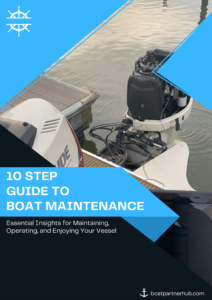Blog
Where Should I Store My Fire Extinguisher On My Boat?

Be Fire-Ready: Smart Fire Extinguisher Placement for Boat Safety
Safety is of utmost importance when boating, and having the proper firefighting equipment on board is essential to prevent and address potential fire hazards. Fire extinguishers are a crucial component of a boat’s safety equipment, allowing boaters to quickly respond to small fires before they escalate. Knowing where to store fire extinguishers on your boat is vital for easy accessibility in case of emergencies. In this article, we will guide you on the best locations to store fire extinguishers on your boat, ensuring that you are well-prepared to handle fire incidents while on the water.
1. Requirements and Regulations
Before discussing the storage locations, it’s important to understand the requirements and regulations regarding fire extinguishers on boats. The specific regulations vary based on the size and type of boat, as well as the boating region or country. Always adhere to the guidelines set forth by the local maritime authorities to ensure compliance and safety.
2. Near High-Risk Areas
Fire extinguishers should be strategically placed near high-risk areas where fires are more likely to occur. These areas typically include:
- Galley/Kitchen: Store a fire extinguisher in or near the galley, where cooking appliances and open flames are present.
- Engine Compartment: Keep a fire extinguisher close to the engine compartment, as it is one of the primary areas where fires may originate due to fuel and electrical components.
3. Easily Accessible Locations
Ensure that fire extinguishers are stored in easily accessible locations that can be reached quickly in case of an emergency. Avoid placing them behind or underneath objects that may hinder swift access.
- Mounting Brackets: Consider using mounting brackets to secure fire extinguishers in place. Mounting brackets keep the extinguishers secure during rough waters and prevent them from becoming dangerous projectiles.
4. On Deck or Cockpit
In addition to the interior locations, it’s a good idea to have a fire extinguisher readily available on the deck or cockpit area. This ensures easy access during outdoor activities and provides an extra layer of safety during refueling operations.
5. Visible and Clearly Marked
Ensure that fire extinguishers are clearly marked with bright colors and labels indicating their purpose. Make sure they are visible and easily identifiable, even in low-light conditions.
6. Regular Inspection
Regularly inspect fire extinguishers to ensure they are in good working condition. Check the pressure gauges, seals, and safety pins. Replace or recharge any extinguisher that has been used or shows signs of damage or wear.
7. Additional Considerations
- Multiples Extinguishers: Depending on the size of your boat, consider having multiple fire extinguishers on board. This provides redundancy and allows you to respond quickly to multiple fire points.
- Fire Blanket: In addition to fire extinguishers, consider having a fire blanket on board. Fire blankets are useful for smothering small fires or for protecting against flames.
Conclusion
Knowing where to store fire extinguishers on your boat is essential for ensuring a swift and effective response to fire incidents. Place them near high-risk areas such as the galley and engine compartment, and in easily accessible locations. Using mounting brackets can help secure the extinguishers during boating activities. Regularly inspect the extinguishers and be familiar with their usage. By adhering to safety regulations and having properly placed and functional fire extinguishers on board, you can navigate the waters with confidence, knowing that you are well-prepared to tackle fire emergencies and protect your boat and its occupants.
FAQs
- Are there different types of fire extinguishers for different types of fires? Yes, fire extinguishers are classified based on the types of fires they can combat. Common types include ABC extinguishers (suitable for multiple fire classes) and BC extinguishers (specifically for fuel and electrical fires).
- Do I need to get my fire extinguishers inspected by a professional? While regular self-inspection is essential, it’s recommended to have a professional inspection at least once a year to ensure the extinguishers are in optimal working condition.
- Is a fire blanket a good alternative to a fire extinguisher? Fire blankets are useful for certain types of fires, particularly small fires or for smothering flames on a person. However, fire extinguishers are more versatile and effective for different fire scenarios.
- What should I do if a fire extinguisher has been used? If a fire extinguisher has been discharged, even partially, it should be replaced or recharged immediately to ensure it is ready for future use.
- Can I use a fire extinguisher that has passed its expiration date? It’s essential to have fire extinguishers that are within their validity period. Expired extinguishers may not work properly and should be replaced promptly.


